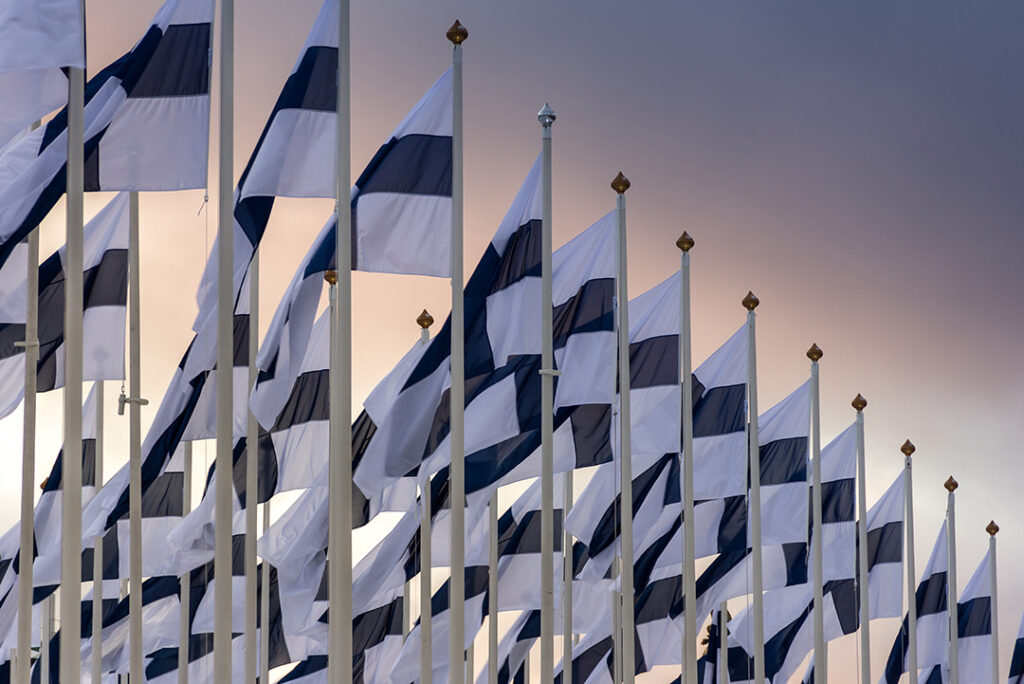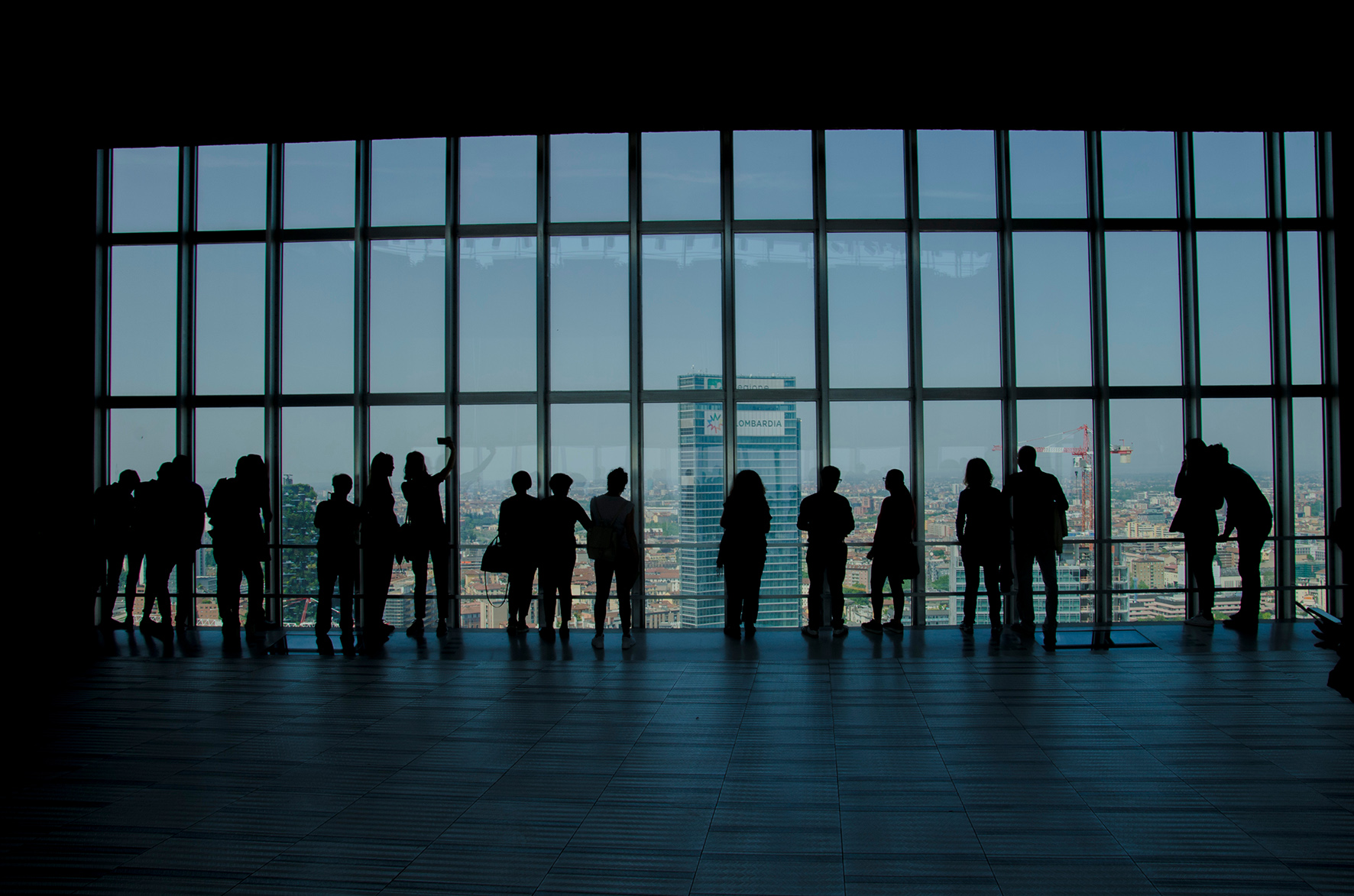Practising Islam in the contested space of Finland
Practising Islam in the contested space of Finland
The number of Muslims in Finland has increased, but practising Islam is still taboo in the public space. This article explains why.
Finland can be defined as both a secular and Christian country. Believing in God or participating in church activities has decreased strongly in the past decades,[1] and Church membership has dropped too.[2] Whereas in 1950, 95% of the population were members of the Evangelical Lutheran Church of Finland,[3] it is estimated that in 2050, only 37% will be a Church member.[4] However, in 2022, over 65% of the population were still members of the Church.[5] Secularisation is thus a growing trend, but a majority of the Finns still identify themselves as Christians – or at least remain connected with the Evangelical Lutheran Church.
Growing Islam
It is clear that over the years, many Finns have decided to leave the Church. In addition, Finns have become less likely to baptise their children as Christians. However, while the status of Christianity in Finland has weakened, the importance of Islam has increased. This is strongly related to immigration,[6] even though most of the immigrants, about 190,000 people at the end of 2022, were still estimated to be Christians.[7] It is estimated that in 2022, there were about 130,000 Muslims in Finland: slightly over 2% of the whole population.[8] The proportion of Muslims is expected to grow in the future.[9]
Practicing Islam in today’s Finland
In light of the above numbers, Islam is still a marginal religion in Finnish society. Yet, practising Islam is rather contested, at least if we skim through the latest news. Muslims in Finland face discrimination in many ways, and sometimes even their existence in public is questioned.[10] [11] For example, Muslims have trouble with finding a place but also permission to pray during their working hours.[12] In October 2023, it was reported that the fast food restaurant McDonald’s in Helsinki prohibited the food couriers from praying in the restaurant premises.[13] After that, similar cases were reported in other workplaces too. Because the employers aim to treat everyone ‘equally’, Muslims might be denied of having extra breaks or room for praying during the working days.[14]
The fear of ‘Islamisation’
Another recent example of the tensions in practising Islam in public relates to the debate over whether Muslims should be allowed to conduct their religious rituals in Finnish cemeteries. In the spring of 2023, the Helsinki city council debated the topic in relation to the construction project of mortuary facilities. A counsellor from the right-wing nationalist party opposed the project because “the taxpayers of Helsinki should not pay for Islamic rituals” and the “ordinary citizens should be able to say goodbye to their deceased relatives in facilities where rituals of other religions are not practised at the same time.”[15] The discourse of ‘Islamisation’ illustrates aptly how contested the space of practising Islam is in countries such as Finland.[16] In the fear of ‘otherness’ – as well documented in the above quotation – Muslims are often portrayed as the ‘unordinary’, and Islam as something different and even dangerous.
There is no one Christianity – and no one Islam
According to researchers, minority religions such as Islam are often portrayed simplistically and only from a certain perspective. On the other hand, mainstream religions can also be portrayed as too homogeneous. For example, in the Finnish media, Christianity is usually considered peaceful whereas Islam is constructed as violent.[17] However, in every religion, there are possibilities for evil and good, and it is the people of faith who finally deploy religious norms and laws thus giving face to those religions.
Given the developments in Finnish society, it might be time to move away from its ‘secular-Christian’ definition. This way, society can make space for ‘others’ and ‘otherness’. Practising Islam does not have to be contested in Finland – and it certainly matters how we define our society.
Our team of analysts conducts research on topics relating to religion and society. Find out their relationships on the EARS Dashboard.
Sources
[1] Nuorten aikuisten suhde uskontoon muuttuu entistä herkemmin
[2] Tilastokeskus: Väestö ja yhteiskunta
[3] Ibid.
[4] Ennuste vuodelle 2050: Suomessa kirkkoon kuuluu vain joka kymmenes, islam ja datauskonto kasvattavat suosiotaan maailmalla
[5] Tilastokeskus: Väestö ja yhteiskunta
[6] Ibid.
[7] Mikä on eri uskontojen kannatus Suomen maahanmuuttajaväestössä?
[8] Suomalaiset muslimit -teoksessa avataan kattavasti muslimien eri elämänpiirejä koulunkäynnistä työelämään
[9] Ennuste vuodelle 2050: Suomessa kirkkoon kuuluu vain joka kymmenes, islam ja datauskonto kasvattavat suosiotaan maailmalla
[10] Muslimien rukoushetket järjestyvät työpaikoilla vaihtelevasti: ”Osaa häiritsee jo se, että olemme olemassa”, sanoo 24-vuotias musliminainen
[11] Suomen muslimiyhteisöt ovat seuranneet hallituksen alkutaivalta hämillään: ”Konkreettinen teko on islamofobiaan puuttuminen”
[12] Muslimien rukoushetket järjestyvät työpaikoilla vaihtelevasti: ”Osaa häiritsee jo se, että olemme olemassa”, sanoo 24-vuotias musliminainen
[13] Ruokalähetit rukoilivat helsinkiläisessä McDonald’sissa, kunnes se yhtäkkiä kiellettiin
[14] Muslimien rukoushetket järjestyvät työpaikoilla vaihtelevasti: ”Osaa häiritsee jo se, että olemme olemassa”, sanoo 24-vuotias musliminainen
[15] Kipinät sinkoilivat Helsingin kaupunginvaltuustossa: Perussuomalaisia syytettiin kuolleiden syrjinnästä – ”Hävetkää”
[16] Mikä on eri uskontojen kannatus Suomen maahanmuuttajaväestössä?
[17] Dosentti Teemu Pauha kirjamessuilla: Media pitää islamia väkivaltaisena ja kristinuskoa rauhanomaisena uskontona, mikä ei ole totta






